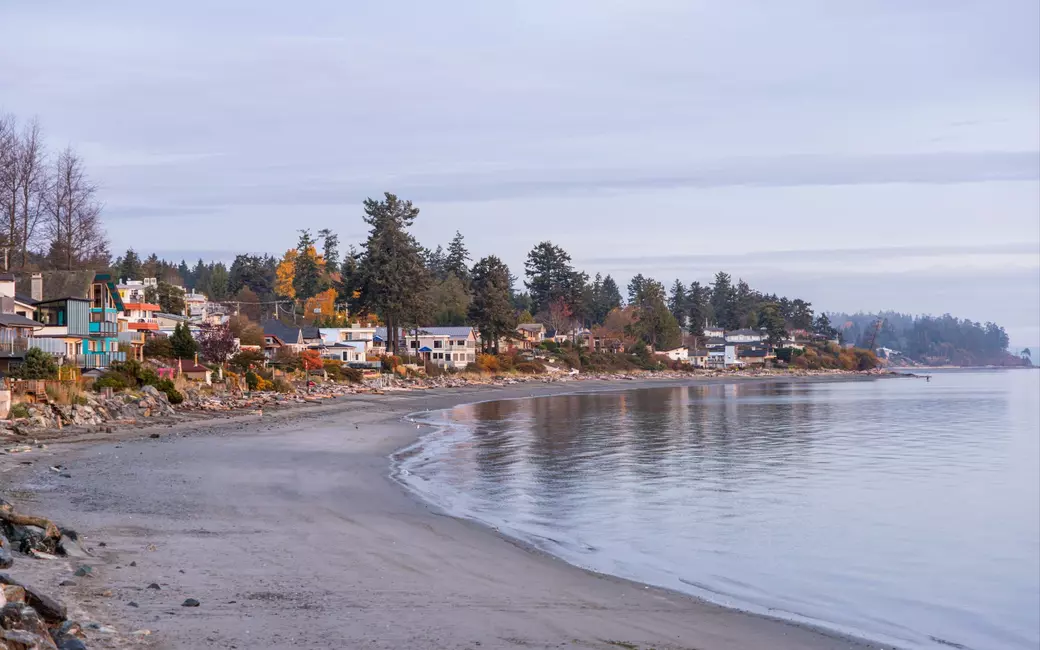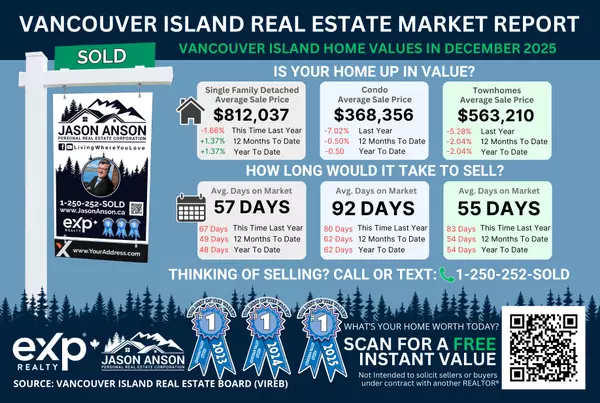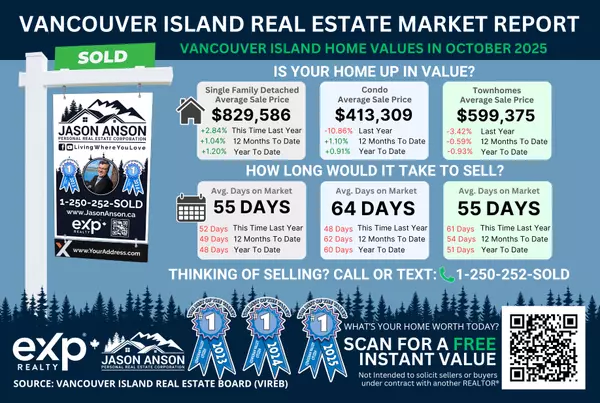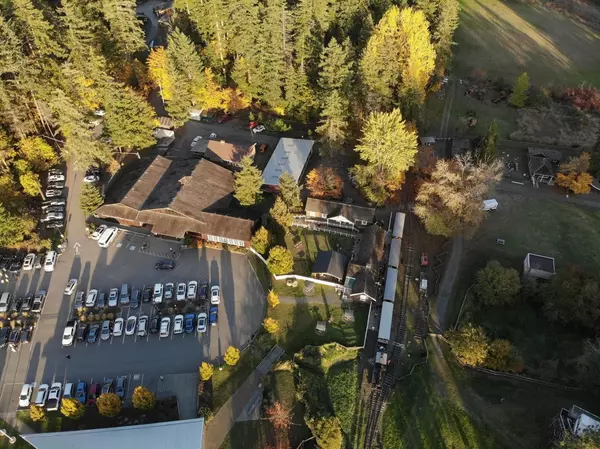Top Places People Are Moving to on Vancouver Island

Where Are People Moving to on Vancouver Island
Vancouver Island is experiencing a wave of migration. With more Canadians working remotely, retiring earlier, or seeking a different pace of life, the Island has become a top destination for people leaving larger cities like Vancouver, Calgary, Edmonton, and even Toronto.
But not everyone is heading to the same spot. Some want walkability and culture. Others want space and waterfront views. And more than ever, buyers are prioritizing affordability, climate, and lifestyle when choosing where to move.
This post breaks down where people are moving to on Vancouver Island in 2025 and why. From growing mid-size cities to emerging small towns, you will learn which regions are attracting new residents and what is fueling the growth.
1. Nanaimo and Surrounding Area
Includes Nanaimo, Lantzville, Cedar, Nanoose Bay
- Population trend: Strong inbound migration from mainland BC
- Average home price in Nanaimo: $800 thousand
- Main reasons for moving: central location, ferries, urban services, affordability compared to Victoria
Nanaimo is quickly becoming the go to choice for people leaving Vancouver. It is large enough to have shopping malls, hospitals, and an airport, but still small enough to feel relaxed. With two ferry terminals, you can be in the Lower Mainland in less than two hours. The surrounding communities of Cedar and Lantzville offer quieter options just minutes away.
2. Parksville and Qualicum Beach
Includes French Creek and Qualicum Bay
- Population trend: Among the fastest growing retirement zones in Canada
- Average home price: $900 thousand
- Main reasons for moving: warm weather, ocean views, medical services, retirement lifestyle
Parksville and Qualicum Beach are attracting a steady stream of retirees, especially from Alberta and Ontario. The flat terrain, sunny climate, and access to beach walking make the area ideal for aging in place. There are also new condos and townhome developments that cater to downsizers and snowbirds.
3. Courtenay and Comox
Includes Cumberland and Union Bay
- Population trend: Rapid growth among families and remote professionals
- Average home price: $750 thousand
- Main reasons for moving: access to airport, nature, schools, affordable housing for young families
The Comox Valley has become a magnet for families priced out of Victoria and Nanaimo. With direct flights to Calgary, Edmonton, and Vancouver, it appeals to professionals with flexible work arrangements. The Valley is also known for its trail network, ski hill, farmers markets, and strong community feel. Cumberland, in particular, has become a hotspot for creatives and remote workers.
4. Cowichan Valley
Includes Duncan, Mill Bay, Cobble Hill, Lake Cowichan, Cowichan Bay, Shawnigan Lake
- Population trend: One of the Island’s highest in migration rates
- Average home price: $725 thousand
- Main reasons for moving: warm climate, vineyards, mid point between Victoria and Nanaimo
The Cowichan Valley is drawing in everyone from young families to early retirees. Its microclimate is the warmest in Canada. Lake Cowichan and Shawnigan Lake offer summer lifestyle appeal, while Duncan and Cobble Hill offer acreage and small town convenience. Mill Bay continues to grow as a commuter option for those working in Victoria. As affordability becomes a concern in South Island, many are choosing the Cowichan Valley as a practical and lifestyle focused alternative.
5. Sooke
- Population trend: Strong growth as a Victoria alternative
- Average home price: $820 thousand
- Main reasons for moving: affordability, waterfront living, nature access, new builds
Sooke has emerged as the fastest growing community on the South Island. It offers modern new homes at prices far below Victoria. Young families, tradespeople, and first time buyers are moving here in record numbers. With ocean views, rainforest hikes, and a friendly community, Sooke offers an attractive lifestyle and a slower pace. Infrastructure is catching up, with new schools, roads, and grocery options being added rapidly.
6. Port Alberni
- Population trend: Renewed growth after years of decline
- Average home price: $560 thousand
- Main reasons for moving: affordability, development opportunity, investor interest
Port Alberni is undergoing a slow but steady transformation. Once seen as a mill town, it is now on the radar of investors, artists, and young families looking for a low cost entry point into Vancouver Island. New businesses, breweries, and infrastructure improvements are attracting people who want to buy real estate before prices rise. If you are a fixer upper type or want a big yard, Alberni delivers.
7. Campbell River
- Population trend: Moderate growth driven by affordability and services
- Average home price: $730 thousand
- Main reasons for moving: hospital, schools, fishing lifestyle, nearby nature
Campbell River attracts residents from smaller towns across the North Island and those looking to leave high priced southern markets. It has more infrastructure than smaller towns but remains affordable compared to the south. With access to the ocean, rivers, trails, and the ferry to Quadra Island, it is a favourite for outdoorsy people. The hospital and growing health care network make it attractive for both patients and professionals.
8. Ucluelet and Tofino
- Population trend: Seasonal migration and investor interest
- Average home price in Tofino: $1.5 million and up
- Main reasons for moving: lifestyle, surf culture, tourism economy
Although small in population, Tofino and Ucluelet attract a disproportionate number of new buyers and investors. The stunning scenery, world class beaches, and creative economy make the area a dream destination for remote workers and seasonal residents. However, the limited housing stock and short term rental regulations make moving here full time a challenge. Most growth is from lifestyle driven buyers, not long term renters.
9. Ladysmith and Chemainus
- Population trend: Consistent low key growth
- Average home price: $690 thousand
- Main reasons for moving: small town charm, proximity to Nanaimo and Duncan
Ladysmith and Chemainus are seeing steady in migration from retirees and families seeking more space without going remote. With charming downtowns, walkable areas, and cultural amenities, they provide an affordable and peaceful lifestyle. Many buyers here are coming from Victoria, Nanaimo, and Vancouver looking for something quieter.
Conclusion
So where are people moving to on Vancouver Island in 2025? The trend is clear. People want lifestyle, climate, and value. That is pushing growth into areas like the Comox Valley, Cowichan Valley, and Sooke. Affordability is also creating interest in Port Alberni, Campbell River, and the fringes of traditional hot spots like Nanaimo and Victoria.
Whether you are planning a move or just watching the market, these trends show that Vancouver Island continues to evolve. Every community offers a different feel, so the best move is the one that fits your values and vision. If you want help choosing the right area, start with a personalized home value report or a free consultation today.
Categories
- All Blogs (78)
- BC Property Tax Search (10)
- Cost of Living on Vancouver Island (2)
- Living on Vancouver Island (26)
- Most Affordable Communities in Campbell River (1)
- Most Affordable Communities in Nanaimo (1)
- Most Affordable Communities in Parksville and Qualicum (1)
- Most Affordable Communities in the Comox Valley (1)
- Most Affordable Communities in the Cowichan Valley (1)
- Most Affordable Communities in the North Island (1)
- Most Affordable Communities in the Surrounding Islands (1)
- Most Affordable Communities on Vancouver Island (1)
- Most Expensive Communities in Campbell River (1)
- Most Expensive Communities in Nanaimo (1)
- Most Expensive Communities in Parksville and Qualicum (1)
- Most Expensive Communities in the Comox Valley (1)
- Most Expensive Communities in the Cowichan Valley (1)
- Most Expensive Communities in the North Island (1)
- Most Expensive Communities in the Port Alberni Area (2)
- Most Expensive Communities in the Surrounding Islands (1)
- Most Expensive Communities on Vancouver Island (1)
- People’s Choice Awards (10)
- Real Estate Market Guide (6)
- Vancouver Island Real Estate Market Reports (3)
- Youbou Real Estate Market Reports (3)
Recent Posts










Thinking About Selling or Buying?
Market conditions change quickly and what looks like a sellers’ market today may balance out in the months ahead. If you are planning to sell your home or purchase a property, having the right data and strategy at the right time is key.
I provide custom Market Movement reports and strategy sessions so you understand exactly where your property stands before making your next move. Connect with me below to get started.


